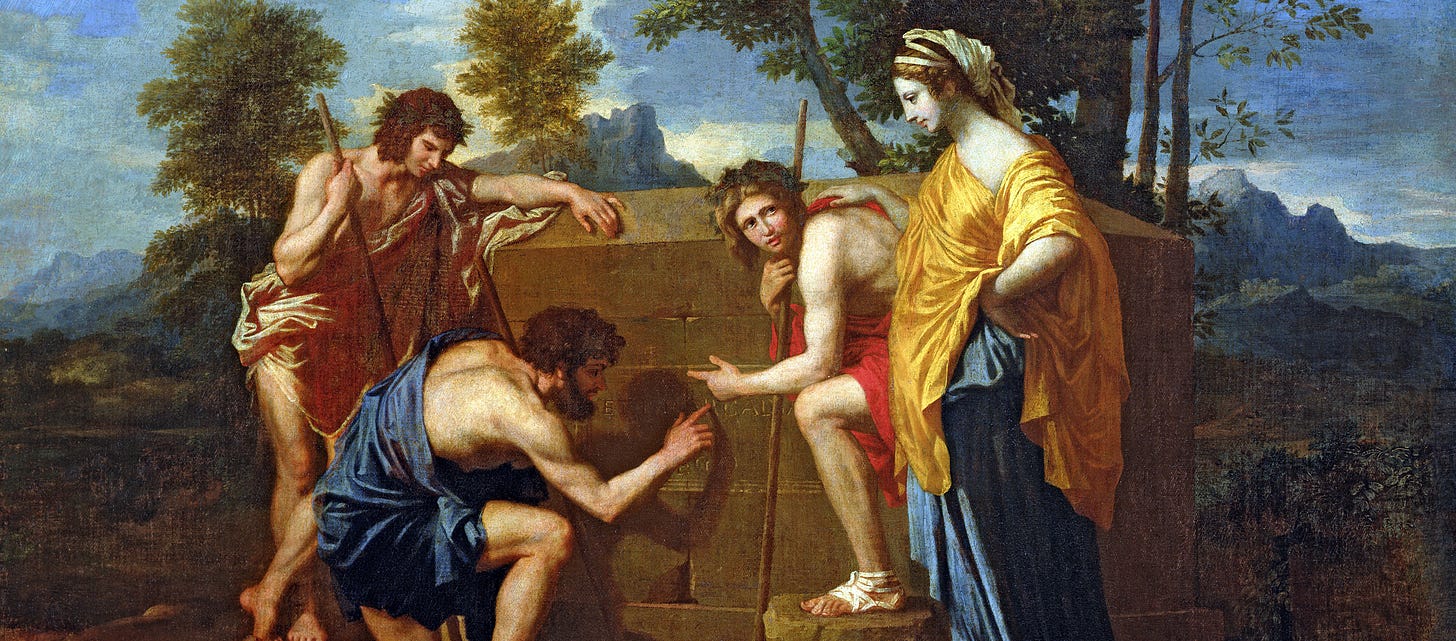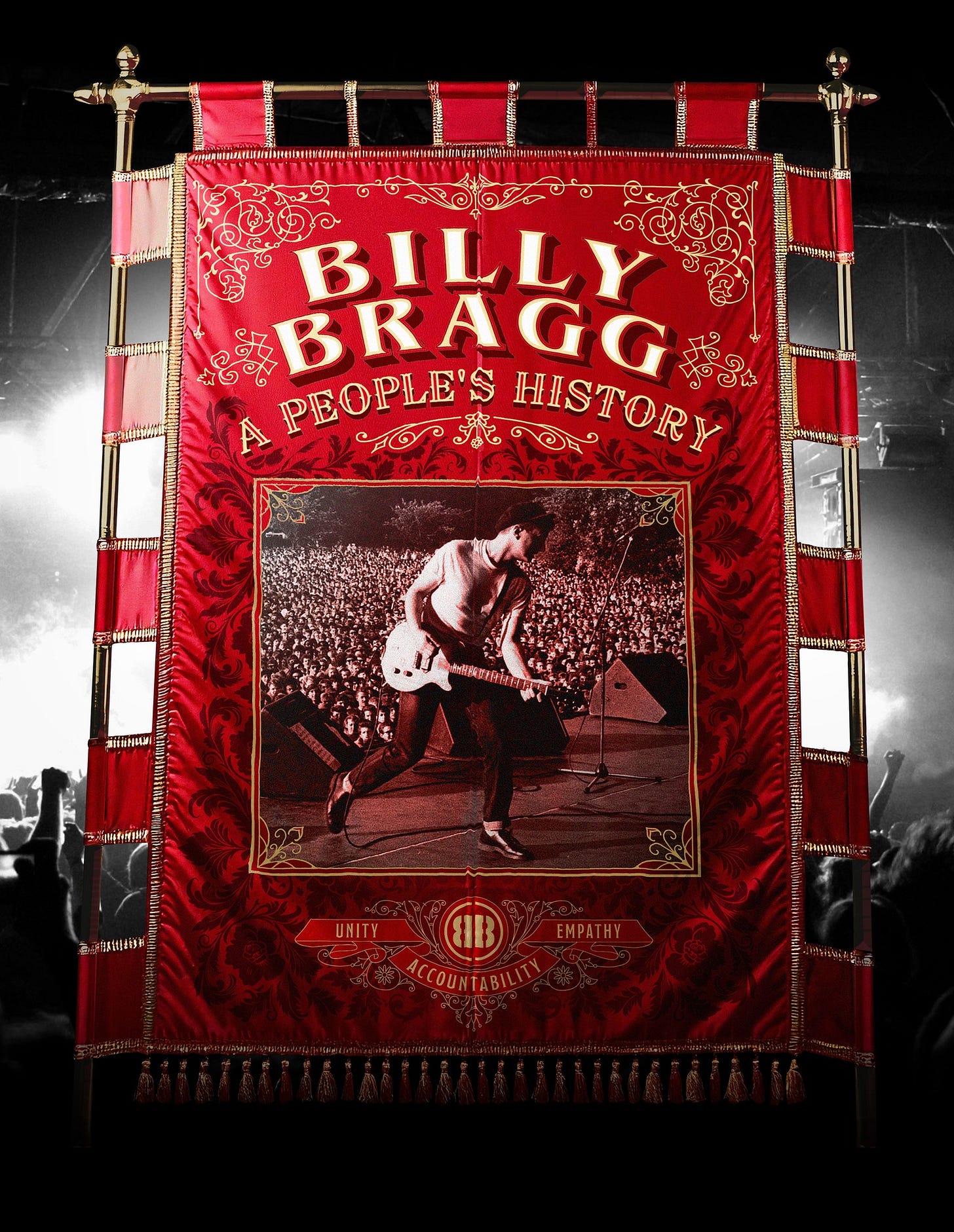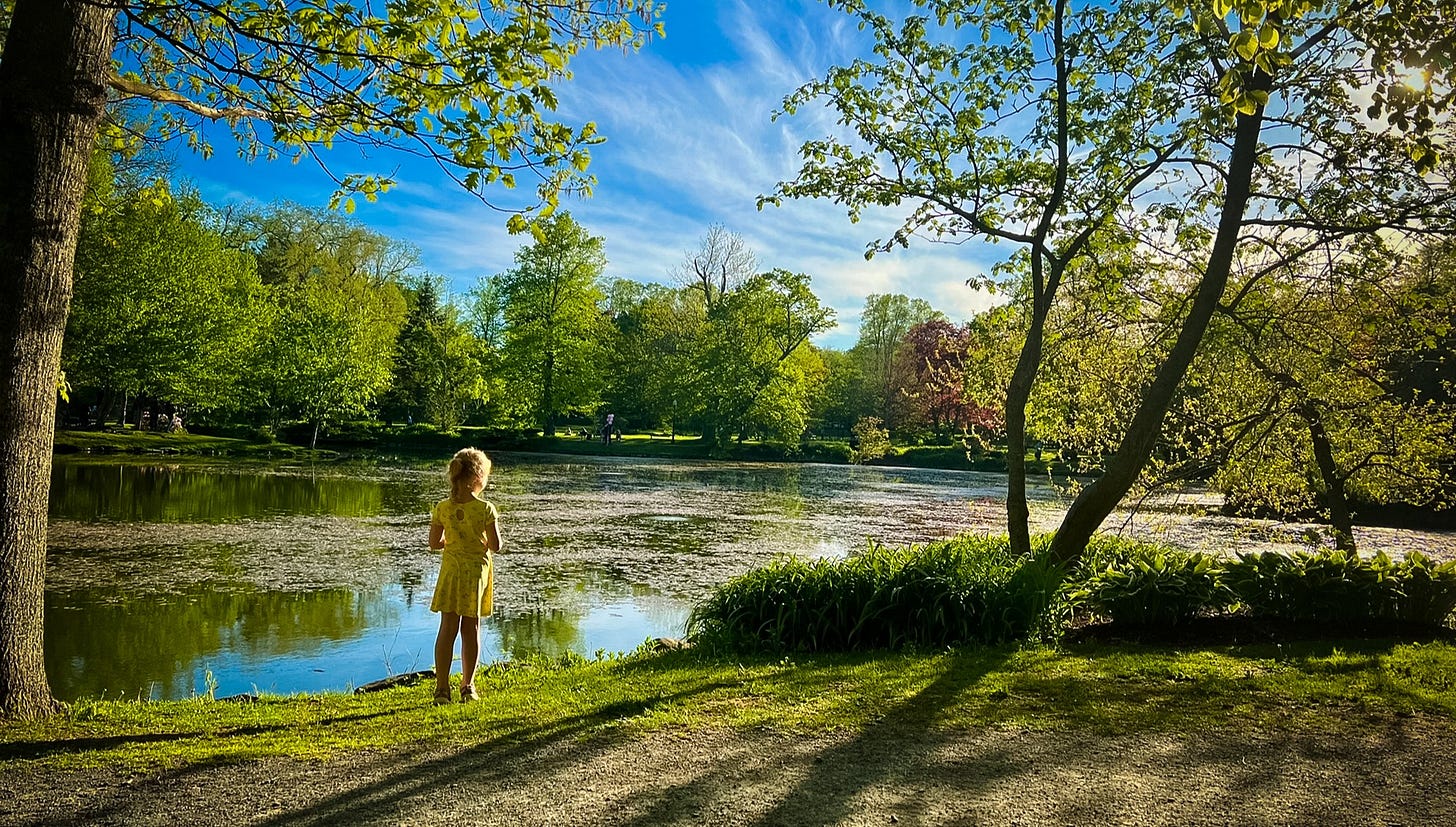The Bee Headline Edition
Memento Mori - The graveyard is the richest place on earth, because it is here that you will find all the hopes and dreams that were never fulfilled.

Les Brown, who remarked:
"The graveyard is the richest place on earth, because it is here that you will find all the hopes and dreams that were never fulfilled, the books that were never written, the songs that were never sung, the inventions that were never shared, the cures that were never discovered, all because someone was too afraid to take that first step, keep with the problem, or determined to carry out their dream."
Similarly, Dr. Myles Munroe, a renowned preacher and author, expressed:
"The wealthiest place in the world is not the gold mines... The wealthiest place on the planet is just down the road. It is the cemetery. There lie buried companies that were never started, inventions that were never made, bestselling books that were never written, and masterpieces that were never painted. In the cemetery is buried the greatest treasure of untapped potential."
All to say, if you have ideas, you gotta get them out and into play.
Over the next week, I’m in the recording studio working on a new song with Dyson Knight, singer from The Baha Men. You might remember their song Who Let The Dogs Out.
In the TV business, I’m starting work on a new Season III of Mega Marine Machines for National Geographic, promoting the launch of Hope For Wildlife Season 11, and working on the development of a new series for international distribution called HOW WE GOT.
And on the development front, we got the news Friday that the final hurdles of the two year long race to get planning permission for THE BIRCHES new building on our Harbour Garden Village Development site in Musquodooibt Harbour were finally crossed, allowing that project to go ahead and us to start the work to finance, permit, and build our Harbour Garden Village project.
So here are headline versions of the ideas we’re researching here that might not become full essays this week but are on my mind.
How Donald Trump Saved the Canadian Dream, Made Us Better Citizens, Increased Voter Engagement, and Got Us Our Culture Back
Donald Trump as done more to focus Canadians on what matters, on counting what counts, and getting civically engaged than anything since… I’m gonna say World War II. Remember when Mr. Trudeau said Canada was post-national and didn’t have a culture? Well, it turns out many among us don’t feel that way.
Own It or Be Owned: The Quiet War on Self-Sufficiency
If we want to become more independent, self-sufficient, and resilient, we might start by returning to the things we’ve traditionally been good at—only this time, with a new approach. The key is ownership. One way to understand the global struggle is this: the rich and powerful don’t want us to own anything, especially not the intellectual property that will shape the future. But real prosperity depends on broad, deep ownership—of our homes, our ideas, our data, and our stuff, including the right to repair that stuff. Without ownership, there is no freedom.
Bring Back the Boats: Why Shipbuilding Is a Cultural Industry
Shipbuilding built Nova Scotia—literally. The mansions, the waterfronts, the towns and roads, the ghost of prosperity still visible in the bones of our coastal communities all trace back to the golden age of ships. Not the megaproject monopoly of Irving, but a wide-open industry made up of hundreds of independent builders, tens of thousands of skilled workers, and a shared sense of purpose. Like music or film, shipbuilding is a cultural industry—and it should be treated as one. Maine got this right: it kept its boatbuilding spirit alive by inviting capital, creativity, and community to keep the tradition going. We could do the same. Imagine a fully refundable, labour-based tax credit for shipbuilding—just like the one that saved our film industry. With one policy, we could make shipbuilding a going concern again, and let Nova Scotians build not just boats, but futures.
How Work Works: The 10% Who Make It All
Nova Scotia has about half a million jobs. A full third of them are government or government-adjacent—too many. Another big chunk are service roles that exist mostly to circulate or extract wealth, not create it. When you boil it down, maybe 10% of jobs, maybe only about 50,000 or fewer, are actually producing the wealth we all depend on. With deep respect for the professionals—doctors, lawyers, teachers, accountants—let’s be clear: real wealth only comes from a few places. We fish it from the sea, grow it from the soil, dig it from the ground, or manufacture it by adding value—whether it’s lobster rolls or TV shows, car tires or countertops. These are the jobs that matter most to our future. The good news? Even small improvements in these areas could massively boost our productivity and prosperity. It’s not complicated. It’s just time to focus.
Banking on The Bank - Follow the Money and Bring It Back Home
One of Nova Scotia’s biggest problems isn’t that we don’t create wealth—it’s how fast it vanishes. The moment your pay hits the bank, it’s gone—digitally vacuumed off to Bay Street and beyond. The big banks that were born here—Scotiabank and RBC—now work against us, extracting value instead of investing in our future. But we have a solution hiding in plain sight: Credit Unions. Local, rooted, and built on the same Progressive Era ideals that once defined us. With bold leadership, the province could partner with these community banks to solve our biggest economic problem—access to capital. Imagine repatriating the billions in public pension funds currently managed by U.S. firms, and putting that money to work here at home. The wealth is already here. We just need to stop exporting it.
Trudeau - The Man Who Never Changed, The Country That Did
We were looking for a symbol of hope for the future that reflected the best of our past, and all that was Canada.
He was there for us.
He was asked to run by the party that raised him. He didn't have to do it. Probably didn't even want to. But he gave it all he had. It must have been humbling, at times humiliating, and hard. He lost family, friends, trusted colleagues, and in some places the respect of the nation.
Now, as we often do after such times of hope, we want a technocrat.
He didn’t change. We did.
It's not that we've lost hope. Those who seem most sour, cynical, and bitter now are, paradoxically, some of the most hopeful. They are the ones who can most clearly imagine more and better.
It's poignant that this is happening during the season that the world reflected on Jimmy Carter who left office under jeers similar to the japing Trudeau is taking now. It shows us, and Mr. Trudeau, that how this is looked back on fifty or sixty years from now depends on what he does next.
For us though, it's important that those not cheering his departure or just worried about the vacuum left behind take a moment to remember just how much we all agree on everything in Canada. How similar we are despite the hucksters and identity-grifters who work to divide us for power-mongering reasons and because of unresolved issues with their own fathers, which they project onto anyone with power or authority.
Last month, in an article about AI, Tim Denning took a long detour into the idea of agency.
“Artificial intelligence is a test to determine who has agency and who doesn't.”
(Anthony Pompliano)
AI replaces dumb work, donkey work. This is a good outcome. This made me realize something: people worship entrepreneurs like their gods.
I don’t subscribe to this philosophy but AI has finally made me understand it. The average person works a job. To get it they had to go to college and get a degree that effectively gave them the “12 step guide to being a lawyer” or whatever they became.
They then assume this “here are the steps” philosophy applies to the real world. But it doesn’t. The days of certainty and predictability are gone.
There is no proven formula to succeed in any industry.When these same people show up for their jobs each day, they need to be told what to do. They need orders. They need someone to give them a career plan or they’ll rage-quit. They’re completely dependent on others. They lack agency (resourcefulness).
What’s difference about entrepreneurship – and why it’s secretly worshipped by most people – is that to build a business you must be high agency (resourceful).
When you build a business:
There are no rules.
There are no proven formulas.
You must create something from nothing.
You must find a way to be better, or the incumbents will outcompete you.
Entrepreneurship is just a high agency life in disguise.
This matters more than ever because in a world of AI, if you’re not high agency, then the low agency admin tasks of society can be done by AI.
AI loves being told what to do and will follow orders 10x better than any human. And AI doesn’t need a rest, piss break, weekend, holiday, or pizza and beers. It doesn’t even need to feel valued because it has no emotions.
What this means for you is the #1 skill you must acquire and be relentless on improving is your agency. Without agency you are easily replaceable.
The good news is any of us can magically become high agency.
Author Mark Manson changed the game with this idea:
In the age of information overload, expertise is not knowing lots and lots of stuff—rather, it’s the ability to sort the useful from the useless.
Rob Cohn's East Coast Music Awards at 37
The 37th East Coast Music Awards are coming up and under a well-deserved and long-overdue cloud of controversy.
Advocating for creative destruction, I hope they fail and that we must begin again with a new vision in mind of music in the Maritimes.
I’m writing this only to celebrate Rob Cohn’s creation of the ECMA’s and all that it brought for so many over all those years now gone past.
But I can’t write that without also recognizing how many hearts, souls, and careers the machine that the ECMA’s became destroyed, discouraged, and disillusioned.
I actually don’t think this latest debacle is even close to the worst they’ve done. After all they did destroy Rob, take everything he created from him and left him in despair along with any hope anyone who didn’t fit snugly in the system had of being part of the ECMA machine.
Here’s what the media won’t write and the music community won’t sing—but it’s just reality and it’s hidden in plain sight for anyone to see.
The ECMA’s hurt more than they helped.
Grants, Gatekeepers, and Games: How Industry Insiderism and Funding Rules Are Killing Music Scenes
A supportive scene is an organic community where musicians, fans, and venues fuel creativity through collaboration, shared spaces, and direct audience connection. Success comes from talent, hustle, and mutual support.
Remember That Time We All Agreed The Math Of Voting Wasn't Working?
Justin Trudeau once stood before Canadians with the charisma of a motivational speaker and the conviction of a true reformer. It was 2015, and he declared, with an inspiring flourish, that his first term would be the last under the antiquated, unfair, and often absurd first-past-the-post (FPTP) electoral system. Democracy would be reborn, he assured us. The system would finally match the will of the people.
Fast forward to 2025, and here we are: How’s that working out for us?
You Gotta Serve Somebody
Canada has been adrift. Blame Justin Trudeau if you like—there’s plenty of ammunition. His penchant for wedge politics has turned policy debates into ideological cage matches. Vaccine mandates became not just public health measures but litmus tests for decency, with dissenters labeled misogynists and racists. His government’s approach to immigration, long a point of consensus, has alienated many. In opening the floodgates to foreign workers and international students amidst a housing crisis, Trudeau has risked poisoning the well of public goodwill toward immigration altogether.
Trudeau’s 2015 campaign was built on the idea that Canada’s strength lies in its differences. And while that’s a poetic notion, it’s incomplete. Diversity is not inherently unifying; it’s a neutral force that can either strengthen or splinter a nation, depending on whether it’s anchored to a larger narrative. A country isn’t just a patchwork of people; it’s a shared story, and Canada’s story is currently missing chapters.
Historian Jack Granatstein—no stranger to throwing rhetorical grenades—once said, “A nation without memory is every bit as adrift as an amnesiac wandering the streets.” Canadian schoolkids aren’t taught to see themselves as inheritors of a legacy. Instead, when Canadian history is invoked at all, it’s to apologize for past sins. This isn’t history; it’s self-flagellation.
If Canada wants to rebuild its collective mission, it could start with a bold, controversial move: mandatory national service. Let every young Canadian spend six months in the military, the Canada Service Corps, or some other form of public work. Yes, it would be expensive and logistically nightmarish. Yes, the military would grumble about babysitting teenagers. But consider the payoff: a generation that has sweated, struggled, and succeeded together. A generation bound not by algorithms but by action.
Rebuilding civic purpose doesn’t stop there. It requires a deep dive into our shared past, warts and all, with an eye toward inspiration rather than self-loathing. Teach kids about the triumphs and tragedies, the heroes and the scoundrels, the victories and the defeats. Show them that they are part of a continuum—that they stand on the shoulders of giants and, occasionally, knaves.
This isn’t about whitewashing history or indulging in blind patriotism. It’s about forging a connection to something larger than ourselves. Because without that, diversity becomes a Tower of Babel.
Nova Scotia Youth Corps
The first blog post I ever wrote was about the notion of a Nova Scotia Youth Corps where ambitious young people could trade service for education. It’s an idea that didn’t impress the rent-seeking university industrial complex. But that doesn’t mean it's a bad idea.
And WOW, I just noticed this article was written by Matt Stickland who has gone on to be a kind of hero of mine for his excellent reporting on the debacle that is Halifax City Hall for The Coast, combining my most favourite journalist with my least favourite media… if only that was a category in their pandering and broadly discouraging “Best of…” editions.
The New Elder Statesman of Protest Pop and Politics: Billy Bragg’s Enduring Voice
Despite his fame, Billy Bragg remains approachable and real. He comes across less like a celebrity and more like your politically savvy mate down at the pub, strumming his guitar and sparking big conversations. In a recent charity auction on ebay of some of his old guitars he invited the winning bidders to come round to his place to pick them up. And on Facebook he regularly chit-chats with folks about the everyday issues on all our minds.
Billy Bragg stands as a rare figure in music and politics, a troubadour whose songs weave the personal with the political, the romantic with the revolutionary. From his early days as a punk-folk firebrand to his thoughtful collaborations and social activism, our man Bill has consistently used his platform to challenge injustice, amplify marginalized voices, and inspire change. His lyrics confront the struggles of the working class, the pitfalls of power, and the hope of solidarity, all delivered with wit, charm, and a deep sense of humanity. As relevant today as ever, Bragg’s observations on modern politics carry the weight of decades spent at the intersection of art and activism, offering a perspective that is both grounded in experience and fueled by an unyielding belief in progress.
40 years ago this week he made his unlikely first appearance on the Top of the Pops
His new book of fan memories. 'Billy Bragg: A People's History' is due out in October and he’s sharing over 400 contributions from fans all over the world. Someone has written about seeing him play with Riff Raff in the late 1970s, while another contributor wrote of attending the fabled gig at the Cheese Pavilion.
I’m sure here will be lots of Canadian memories mixed in. He made a big impression on many of us, sharing how sex and socialism intertwined in the 80’s.
Film and TV Industry in Steep, Uncontrolled Decline, with No Hope in Sight.
For anyone who has family or friends in the film and TV business, it’s often very difficult to get real information about what’s happening in an industry built on hype and positive vibes. The truth is not as good. The longer we keep our shiny happy faces on, the more ground is ceded irretrievably to YouTube on one side and Private Equity on the other.
If you or anyone you know wants the truth of the dire situation, here’s the Canadian Media Producer’s Association year end report.
THE NEW CANADIAN
Finally, on the most positive of notes. Here’s to THE NEW CANADIAN.
Who Must We Become to Build the Foundation for What Comes Next?
We say Canada is a country of immigrants. And while that’s technically true, it’s not the story we need now. Because this moment in our national life is not about how people get in. It’s about who we must all become.
The New Canadian is not a demographic. Not a status. Not a checkbox on a government form. The New Canadian is an ideal—a kind of citizen we need more of if we’re going to build a country strong enough, kind enough, and beautiful enough for the rising generation.
This isn't about "becoming" Canadian. It's about evolving the idea of Canada.
Through humour, story, and sharp insight, The New Canadian offers something to the next generation of citizenship—not rooted in race, religion, or even history—but in shared responsibility, creativity, adaptability, and a charitable view of things — a belief in Canada, it’s institutions, it’s opportunity, and promise.
The New Canadian is not waiting. Not for permission. Not for government. Not for consensus. They’re already building. Already tending. Already cleaning up the mess.
This is not a nostalgia trip. Not a call to "take our country back." It’s a call to grow the hell up.
To stop outsourcing responsibility. To stop believing that progress is someone else’s job. To stop waiting for heroes, parties, or policies to do what can only be done by people with skin in the game and their names on the line.
The truth is: Canada is held together by a thin layer of quietly responsible people.
Not bureaucrats. Not ideologues. Just citizens who treat their town like it’s their home—because it is.
Start Where You Are
You don’t need to run for office.
You just need to show up before the problem explodes.
You need to ask questions when things are still boring, not just when they’re scandalous.
That’s what the New Canadian does.
For now, here’s your question:
What’s one small civic habit you’ve let slide—and what would it take to pick it back up again?
Comments open. I’d love to hear from you.
—JWC













